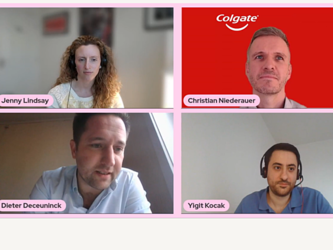Licence to thrive: How to help people live better
The concept of ‘thriving’ is deeply personal and eludes a definitive answer. Thriving is a universal need, but a personal experience. To understand how lifestyle, culture and media impact people’s views of what it means to thrive requires asking them what helps them live well on a day-to-day basis.
Research agency C Space carried out qualitative and quantitative research across the UK, US, India, China and Germany exploring how people define ‘thriving’ and what role brands can play to help them live better. “We wanted to get deeply human with people and at some degree of scale, so we weren’t talking to the white-Anglocentric version of ourselves,” says Bill Alberti, managing partner, human truths, at C Space parent company Interbrand. “We wanted to see if this was across geographies.”
The research consisted of qualitative discussions via an online community with 502 participants, 30 in-depth interviews, and a nationally representative survey, all conducted in 2022.
A few common factors emerged as helping people thrive – living sustainably, healthier lifestyles, self-expression and connecting with the wider community. The quant found more than half of consumers across all five countries wanted support from brands to help them thrive, with the cost of living the top concern in the UK and US. There was a similar picture in Germany, where financial security was the main concern.
There were also differences in outlook – 61% of Generation Z respondents in the US were optimistic about their future compared with 49% of the same age group in the UK. Social media was singled out as having a detrimental effect on people’s lives, with 83% of Generation Z in the UK feeling pressure to reach certain life milestones such as being in a relationship.
Many people across the study expect a closer relationship with brands and for these to play a greater role in life satisfaction. Between 42% and 51% of respondents across the five countries studied agreed that brands and corporations should make it easier for consumers to live better lives.
This differed between countries – while the UK and India were more focused on practical help with finances and the cost of living, China and the US were more receptive to brands supporting self-expression and better lifestyles. In Germany, sustainability and buying more locally were popular.
“Brands have an opportunity to shift the conversation in a way that helps consumers,” says Sophie Gaskill, executive director, brand at Interbrand. “Brands absolutely are a part of the solution. But it is about going deeper on human truths and committing to them.”
This is a big change for some brands. “Competitive advantage used to be fixed – you had your product, you had technology, you had your competitors,” Gaskill explains. “Since then, the world has sped up, and increasingly it is the relationship with the customer that forms the main part of competitive advantage – what brands can work around and invest in.”
However, the other half of consumers felt brands added to existing anxieties. Part of the problem highlighted in the research was companies selling easy promises of better health, versus supporting people in the long-term process of getting better at living.
For example, one research participant from India set out how she thought some brands were adding to the stresses and strains of modern life: “If you were to look at what’s stopping me from thriving, it is anxiety and self-doubt. And I know that comes from within, but I also feel like if you were to actually dig really deep down and figure out where that anxiety is coming from – I think it’s brands. I mean, they don’t really cater to people’s wellbeing.”
For many people, brands can be a help or a hindrance. Christian Purser, chief executive at Interbrand London, says: “Few brands are doing a great job helping people thrive, because most are focused on how to sell more, rather than addressing what consumers fundamentally need – in this case, offering promises of better health versus the more holistic and long-term process of thriving.”

We hope you enjoyed this article.
Research Live is published by MRS.
The Market Research Society (MRS) exists to promote and protect the research sector, showcasing how research delivers impact for businesses and government.
Members of MRS enjoy many benefits including tailoured policy guidance, discounts on training and conferences, and access to member-only content.
For example, there's an archive of winning case studies from over a decade of MRS Awards.
Find out more about the benefits of joining MRS here.














0 Comments